Filter by
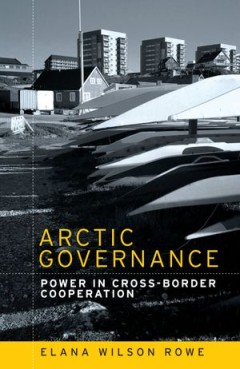
Arctic governance
This book seeks to pose and explore a question that sheds light on the contested but largely cooperative nature of Arctic governance in the post-Cold War period: how does power matter – and how has it mattered – in shaping cross-border cooperation and diplomacy in the Arctic? Each chapter functions as a window through which power relations in the Arctic are explored. Issues include how repr…
- Edition
- -
- ISBN/ISSN
- 9781526131645
- Collation
- -
- Series Title
- -
- Call Number
- 300
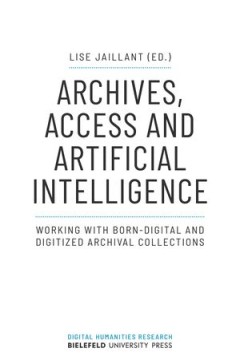
'Archives, Access and Artificial Intelligence : Working with Born-Digital and…
Digital archives are transforming the Humanities and the Sciences. Digitized collections of newspapers and books have pushed scholars to develop new, data-rich methods. Born-digital archives are now better preserved and managed thanks to the development of open-access and commercial software. Digital Humanities have moved from the fringe to the center of academia. Yet, the path from the apprais…
- Edition
- -
- ISBN/ISSN
- 9783839455845
- Collation
- -
- Series Title
- -
- Call Number
- 300
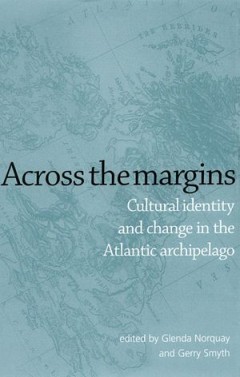
Across the margins Cultural identity and change in the Atlantic archipelago
Across the margins offers a comparative, theoretically informed analysis of the cultural formation of the Atlantic Archipelago. In its overall conception and in specific contributions (including an introductory essay), this collection demonstrates the benefits of working across the disciplines of history, geography, literature and cultural studies, but also presents new configurations of cultur…
- Edition
- -
- ISBN/ISSN
- 9780719057496
- Collation
- -
- Series Title
- -
- Call Number
- -

This Was Not Our War Bosnian Women Reclaiming the Peace
"Replacing tyranny with justice, healing deep scars, exchanging hatred for hope . . . the women in This Was Not Our War teach us how."—William Jefferson Clinton This Was Not Our War shares amazing first-person accounts of twenty-six Bosnian women who are reconstructing their society following years of devastating warfare. A university student working to resettle refugees, a paramedic who foun…
- Edition
- -
- ISBN/ISSN
- 9780822333555
- Collation
- -
- Series Title
- -
- Call Number
- -

Ontological Terror Blackness, Nihilism and Emancipation
In Ontological Terror Calvin L. Warren intervenes in Afro-pessimism, Heideggerian metaphysics, and black humanist philosophy by positing that the "Negro question" is intimately imbricated with questions of Being. Warren uses the figure of the antebellum free black as a philosophical paradigm for thinking through the tensions between blackness and Being. He illustrates how blacks embody a metaph…
- Edition
- -
- ISBN/ISSN
- 9780822370727
- Collation
- -
- Series Title
- -
- Call Number
- -
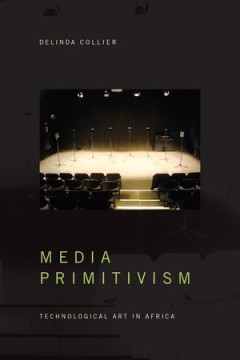
Media Primitivism Technological Art in Africa
In Media Primitivism Delinda Collier provides a sweeping new understanding of technological media in African art, rethinking the assumptions that have conceptualized African art as unmediated, primary, and natural. Collier responds to these preoccupations by exploring African artworks that challenge these narratives. From one of the first works of electronic music, Halim El-Dabh’s Ta’abir A…
- Edition
- -
- ISBN/ISSN
- 9781478090434
- Collation
- -
- Series Title
- -
- Call Number
- -
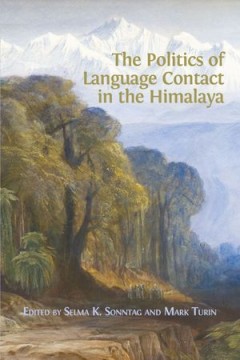
The Politics of Language Contact in the Himalaya
"This highly original and timely collection brings together case studies from salient areas of the Himalayan region to explore the politics of language contact. Promoting a linguistically and historically grounded perspective, The Politics of Language Contact in the Himalaya offers nuanced insights into language and its relation to power in this geopolitically complex region. Edited by respecte…
- Edition
- -
- ISBN/ISSN
- 9781783747061
- Collation
- -
- Series Title
- -
- Call Number
- -

The Fixer Visa Lottery Chronicles
In the West African nation of Togo, applying for the U.S. Diversity Visa Lottery is a national obsession, with hundreds of thousands of Togolese entering each year. From the street frenzy of the lottery sign-up period and the scramble to raise money for the embassy interview to the gamesmanship of those adding spouses and dependents to their dossiers, the application process is complicated, exp…
- Edition
- -
- ISBN/ISSN
- 9781478001911
- Collation
- -
- Series Title
- -
- Call Number
- -
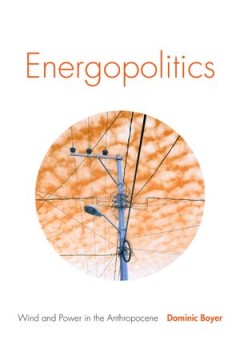
Energopolitics Wind and Power in the Anthropocene
Between 2009 and 2013 Cymene Howe and Dominic Boyer conducted fieldwork in Mexico's Isthmus of Tehuantepec to examine the political, social, and ecological dimensions of moving from fossil fuels to wind power. Their work manifested itself as a new ethnographic form: the duograph—a combination of two single-authored books that draw on shared fieldsites, archives, and encounters that can be pro…
- Edition
- -
- ISBN/ISSN
- 9781478003137
- Collation
- -
- Series Title
- -
- Call Number
- -

Encoding Race, Encoding Class Indian IT Workers in Berlin
In Encoding Race, Encoding Class Sareeta Amrute explores the work and private lives of highly skilled Indian IT coders in Berlin to reveal the oft-obscured realities of the embodied, raced, and classed nature of cognitive labor. In addition to conducting fieldwork and interviews in IT offices as well as analyzing political cartoons, advertisements, and reports on white-collar work, Amrute spent…
- Edition
- -
- ISBN/ISSN
- 9781478091875
- Collation
- -
- Series Title
- -
- Call Number
- -
 Computer Science, Information & General Works
Computer Science, Information & General Works  Philosophy & Psychology
Philosophy & Psychology  Religion
Religion  Social Sciences
Social Sciences  Language
Language  Pure Science
Pure Science  Applied Sciences
Applied Sciences  Art & Recreation
Art & Recreation  Literature
Literature  History & Geography
History & Geography